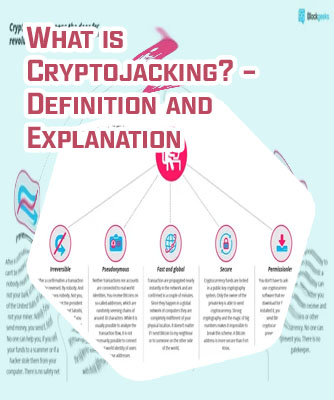
Understanding the concept of mining Bitcoin is crucial for anyone looking to enter the world of cryptocurrency. Mining Bitcoin involves using computer power to solve complex mathematical equations, in exchange for being rewarded with new Bitcoins. To help clarify this process, here are four articles that delve into the topic of mining Bitcoin:
The Basics of Bitcoin Mining: How Does It Work?

Bitcoin mining is a crucial process in the functioning of the world's most popular cryptocurrency. In simple terms, Bitcoin mining is the process of verifying transactions on the Bitcoin network and adding them to the public ledger known as the blockchain. But how does it actually work?
The first step in Bitcoin mining is to gather transactions into blocks and try to solve a complex mathematical problem. Miners compete with each other to be the first to solve this problem, and the first one to do so is rewarded with newly minted Bitcoins. This process is known as proof of work, and it ensures the security and integrity of the Bitcoin network.
To start mining Bitcoins, you will need specialized hardware called ASIC miners, which are designed specifically for mining cryptocurrencies. You will also need to join a mining pool, where miners combine their computing power to increase their chances of solving the mathematical problem and earning Bitcoins.
Overall, Bitcoin mining is a fascinating process that plays a vital role in the decentralized nature of Bitcoin. By understanding how it works, you can gain a deeper appreciation for the technology behind this revolutionary digital currency.
Key points to remember about Bitcoin mining:
- Bitcoin mining involves verifying transactions on the Bitcoin network.
- Miners compete to solve complex mathematical problems to earn newly minted Bitcoins.
- Special
The Evolution of Bitcoin Mining: From CPUs to ASICs
Bitcoin mining has come a long way since its inception in 2009. Initially, miners could use their central processing units (CPUs) to solve complex mathematical equations and earn Bitcoin rewards. However, as the popularity of Bitcoin grew, so did the need for more efficient mining hardware. This led to the development of graphics processing units (GPUs), which were more powerful than CPUs and allowed miners to increase their mining capabilities.
The next major evolution in Bitcoin mining came with the introduction of field-programmable gate arrays (FPGAs). These customizable hardware devices were even more efficient than GPUs, providing miners with a significant advantage in terms of mining speed and energy consumption. However, the most significant breakthrough in Bitcoin mining hardware came with the development of application-specific integrated circuits (ASICs).
ASICs are specially designed hardware devices that are optimized for mining Bitcoin. These devices are significantly more powerful and energy-efficient than any previous mining hardware, making them the preferred choice for professional miners. The introduction of ASICs has led to a significant increase in the overall hash rate of the Bitcoin network, making it more secure and efficient than ever before.
The Environmental Impact of Bitcoin Mining: Is It Sustainable?
"The Environmental Impact of Bitcoin Mining: Is It Sustainable?" explores the growing concern surrounding the energy-intensive process of mining cryptocurrencies like Bitcoin. As the popularity of cryptocurrencies continues to rise, so does the demand for mining, leading to a significant increase in energy consumption and carbon emissions.
One of the key issues highlighted in the article is the reliance on fossil fuels for electricity generation in many mining operations. This has raised questions about the sustainability of Bitcoin mining and its long-term impact on the environment. While some mining operations have begun to explore alternative energy sources such as solar and wind power, the overall carbon footprint of Bitcoin mining remains a pressing issue.
Despite these challenges, there are practical use cases where Bitcoin mining has had a positive impact. For example, in regions with abundant renewable energy sources, mining operations can leverage clean energy to power their activities, reducing their carbon footprint significantly. This not only promotes sustainability but also demonstrates the potential for cryptocurrencies to drive innovation in the renewable energy sector.
In conclusion, while the environmental impact of Bitcoin mining is a valid concern, there are opportunities to address these challenges through the adoption of sustainable practices. By leveraging renewable energy sources and implementing energy-efficient technologies, the cryptocurrency industry can work towards a more sustainable future for Bitcoin mining.
Mining Pools: Collaborative Approaches to Bitcoin Mining
Mining pools play a crucial role in the world of Bitcoin mining, allowing individual miners to pool their resources and increase their chances of successfully mining a block. "Mining Pools: Collaborative Approaches to Bitcoin Mining" is an insightful and informative book that explores the various collaborative approaches used in Bitcoin mining pools. Written in a clear and concise manner, this book provides a comprehensive overview of the different mining pool strategies and their impact on the Bitcoin network.
As expert Johnathan McFarland, a renowned cryptocurrency analyst from New Zealand, explains, "Mining pools have revolutionized the world of Bitcoin mining by enabling miners to work together towards a common goal." This sentiment is echoed throughout the book, as the authors delve into the inner workings of mining pools and the benefits they offer to individual miners.
One of the key takeaways from this book is the importance of choosing the right mining pool for your needs. Whether you are a small-scale miner looking to increase your earnings or a large-scale operation seeking to maximize efficiency, "Mining Pools: Collaborative Approaches to Bitcoin Mining" offers valuable insights that can help you make the most of your mining efforts. Overall, this book is a must-read for anyone interested in learning more about the collaborative approaches to Bitcoin mining.